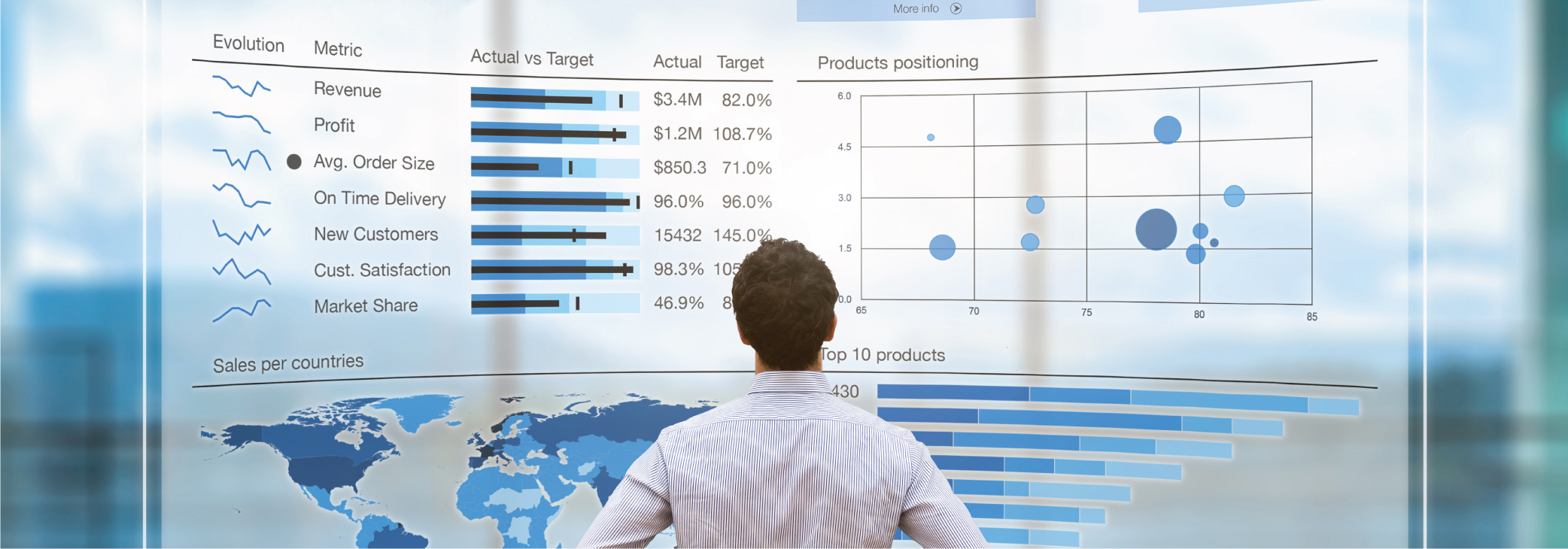KPIs in digital marketing
20/11
Digital Marketing KPIs or Key Performance Indicators are quantifiable goals which help you to track and measure success. There are a number of reasons why using specific KPIs are important in digital marketing. Here are some of them:
First and foremost, accurate and up-to-date information about marketing and advertising efforts lead to better decisions. Things move quickly in digital advertising, and it’s important to be able to try things quickly when necessary, in order to remain agile and responsive to market changes. Armed with current data and information about the performance of your current ad campaign, you can shift more money and effort into the tactics that are producing the best results and away from underperforming contexts.
Secondly, the things that you measure on a consistent basis tend to get more of your time and attention. This ultimately leads to better results as well.
Finally, tracking KPIs in your digital advertising program helps you replicate successes in the future while simultaneously avoiding past failures. Data points that illuminate the specific steps taken in past successful campaigns can then be integrated into future ones for an improved shot at those same results, or better.
The aim of this post is to help you set proper digital marketing KPIs to measure what really matters in a way which all parties can agree on.
Choosing what to measure:
The most important part of setting a KPI is choosing what to measure. You really don’t want to go wrong at this stage but don’t worry, it’s pretty simple – just make sure you measure factors which will have an impact on your organization’s targets or goals.
Often KPIs are connected to a “conversion”. This can be defined as any valuable online interaction somebody has with your online presence. It’s up to you to define what to track as a conversion depending on what you’re looking to achieve. As a general rule, conversions should be specific (i.e. easily to define and measure) and significantly beneficial (E.G. a user filling in a contact form on making a purchase).
What should you measure
Quantifiable metrics which align with the goals of your organization? These will often be sales or leads. If you work for a start-up it might be too soon to measure leads but you can always measure reach and engagement.
Leading Indicators. A leading indicator is used by economists to give an indication of which way the economy is headed. A leading indicator is useful in marketing as it can show that your time and effort is starting to have an impact even if it hasn’t yet had significant results. As an example, you might measure how many people have spent over 3 minutes on your site even if they haven’t filled in the contact form.
What you shouldn’t measure
You should not measure things you can’t impact. If you can’t change it, there’s no point it being a KPI.
Also, it is not proper to measure narcissism metrics. The classic example of a vanity metric is a Managing Director who wants to be at the top of Google for a keyword that doesn’t provide any traffic which converts.
Conclusion:
In general, KPIs are a useful way for Digital Marketers to set expectations and prove that their work is having a positive impact. To outsiders, the success of digital marketing activity can be seen as difficult to measure but this really isn’t the case. In fact, it’s normally easier to measure progress for a digital campaign than an offline one. In reference to the above conclusion, it is equally important for a digital marketer to be able to identify what kind of KPIs should measure and what should avoid considering for measurement.



